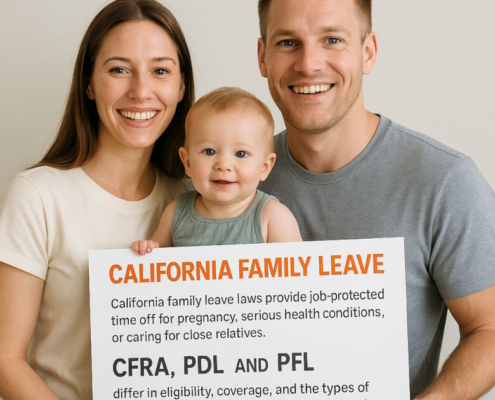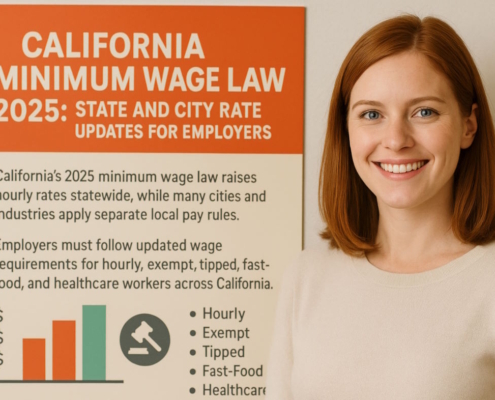What are non-compete clauses?
Nearly 30 million American workers have agreed to accept non-compete clauses in their employment contracts.
The goal of these contracts is to prevent competitors from gaining access to sensitive information, such as trade secrets or customer data. Most of the time, they achieve this by limiting the availability of specific jobs for highly trained workers.
But, over the last few decades, a growing number of businesses have made it a standard practice to have their employees sign these agreements. Despite the fact that they might not actually endanger the proprietary assets that a company has obtained via legal means.
Many firms continue to force employees to sign non-compete agreements despite the fact that they are illegal in many states, including California.
Nearly half of the California businesses polled in 2019 (45%) reportedly had non-compete clauses in place for at least part of their employees.
How is that even feasible? These limitations frequently make employees feel threatened. They are either unaware that non-compete clauses are unlawful or do not know how to fight their employers in court.
You might be thinking, “Are non-competes valid in California?” First, let’s take a look at the limitations that employees have due to non-compete agreements. Additionally, we will look into the manner in which they are dealt with according to the laws of California. Also, what you ought to do in the event that you are confronted with an unlawful non-compete agreement.
How Does a Non-Compete Agreement Work?
With a few notable exceptions, under California law, no contract may prohibit an individual from engaging in a lawful occupation, trade, or business. Put simply, non-compete agreements cannot be enforced in California.
California is one of the few states that does not recognize and enforce non-compete agreements. It is not possible to employ a non-compete agreement to safeguard proprietary business information in California. Companies should instead look into alternative methods of securing sensitive data and proprietary information.
After leaving one job, staff members may be required to wait six to twelve months before beginning a new position. Another option is to forbid them from collaborating with any other business operating within fifty miles of their former employer’s primary location.
Contracts for employment often contain such provisions. On the other hand, they might also constitute a separate document that an employer demands as a prerequisite for employment.
Non-disclosure and non-solicitation agreements are two examples of related restrictive provisions.
A Concise Overview of Non-Compete Agreements
Executives and those in highly technical occupations were the only ones traditionally subject to non-compete agreements. For instance, people who have access to sensitive data. Alternatively, those who contributed to the creation of intellectual property that is vital to the company’s operations.
Businesses were able to safeguard their assets with the use of non-compete agreements, which forbade employees from bringing valuable knowledge and expertise to rival companies.
Although businesses used to be more hesitant to have employees sign non-compete agreements, this practice has grown in popularity over the last 20 years. This encompasses a wide range of positions, from middle management to lower-level employees.
A 2019 survey found that non-salaried employees make up over 53% of those in the US who are bound to non-compete agreements. Beyond that, fourteen percent of them have annual incomes below forty thousand dollars.
For employees’ professional goals and income possibilities, these limitations might be devastating. Contributing to wage stagnation and further entrenching pay inequities, non-compete agreements prohibit workers from seeking competitive compensation and prospects.
Research from 2019 by the Economic Policy Institute demonstrates that the economy suffers when employees are unable to move freely due to non-compete clauses. Reason being, they limit employees’ ability to pursue better possibilities elsewhere, which in turn stifles innovation and growth.
In California, how are non-compete agreements regulated?
Numerous states, including North Dakota, Oklahoma, and most recently Washington D.C., have passed legislation prohibiting non-compete agreements due to the mounting evidence that these contracts hinder economic growth and employee mobility. Others have abolished them or drastically limited the way they are used.
Restricting an employee’s ability to find other employment is against the law in California. Any agreement that forbids a person from engaging in a lawful profession, business, or trade is void under Section 16600 of the California Business and Professions Code.
There are a handful of narrow circumstances in which state labor law does not prohibit non-compete agreements. For instance, in the event of a company sale or the dissolution of an LLC.
The law is straightforward and easy in the majority of cases when non-compete agreements emerge (as contracts between businesses and individual employees): an organization cannot prohibit you from working in a specific area, for a specific duration, or for a competitor.
What Happens If the Business Isn’t Based in California?
The fact that your company’s headquarters may be located a state where non-compete agreements are lawful does not negate the protections afforded to California employees by this prohibition.
“Choice of law” provisions are common in employment contracts for companies that hire people from multiple states. The parties herein expressly agree that the jurisdiction of the state of contract execution shall have exclusive jurisdiction over any dispute.
Executives residing in California who have signed employment contracts with companies based in New York may have effectively agreed to have any future lawsuits involving non-compete agreements governed by New York law.
Section 925 of the California Labor Code, however, would render such a provision null and void. In the event that a dispute arises between you and your employer and you are a resident or employer of California, the laws of the state shall govern.
Your employer has no right to coerce you to sign a document waiving your protections under California labor law so that a court in another state can decide your case.
Three Possible Exceptions to a Non-Compete Agreement in California
There are three scenarios in which a non-compete agreement might be valid in California.
- If the worker sells company goodwill.
- If the owner of the business sells their interest in the company.
- If the owner of the business sells all goodwill and operating assets.
A Guide for California Workers Who Have Signed a Non-Compete Agreement
Despite the fact that non-compete agreements are illegal in California, many employers nonetheless offer them or attempt to force employees to sign them.
These clauses might be located in the nitty-gritty of employment contracts, where employees are likely to miss them. In spite of the employee’s knowledge that they are signing one, they may feel pressured by their company or afraid of legal ramifications to comply with its terms.
If your employer in California asks you to sign a non-compete agreement before you can work for them, you have the right to report them to the state’s attorney general.
Companies that issue non-compete agreements that are not legal may face fines or other legal consequences.
Even if an employee violates their non-compete agreement—for example, by accepting a position with a rival company—their employer may still threaten legal action.
They do not, however, have a valid case unless your circumstances meet one of the aforementioned exceptions set out by California law.
Reach out to a California employment lawyer today for professional advice
Seek the advice of an employment attorney without delay if you find yourself embroiled in a California lawsuit alleging a violation of a non-compete agreement. Make every effort to have the case dismissed.
You can also file a civil case to get compensation. You may be eligible to receive damages and/or pay court fees if an illegal non-compete agreement harmed your ability to make a living.
If you feel that your employer has imposed an illegal non-compete agreement on you, an employment attorney can help you decide whether to report the violation or take legal action.































